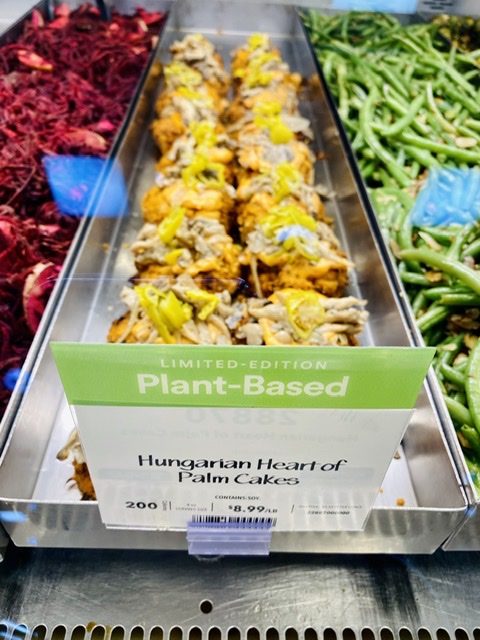The short answer is no. You may be confused between the terms vegan and plant-based when shopping or surfing social media as they seem to be used interchangeably, but there are big differences between the two terms. Trust me, I am sometimes just as confused as to why some choose one label over the other but there seems to be an underlying reason. Marketing. Let me first describe the biggest differences then I’ll break it down.
Veganism is a lifestyle not a diet. Vegans shun wearing animal products like wool or leather, do not eat honey as it’s the byproduct of bees and are just as concerned about animal welfare as what they put in their mouth. These are all personal choices and within veganism there are varying degrees of how far people take it, but they all agree that they eat no meat (or anything that had parents).
Plant-based seems pretty straightforward and at first glance sounds like it means the same thing as vegan, but most classify it as a diet and not a lifestyle. Influencers, stores, manufacturers and even popular movements like Forks Over Knives, Game Changers and others are careful to avoid labeling themselves as vegan. Why? I guess they feel it’s limiting, often controversial and turns people off. When attending an Engine 2 immersion program in 2011 the word vegan was rarely mentioned and everything was referred to as “plant-based“. Now, the whole food plant based terminology they used was meant to move people away from eating processed foods and wasn’t leaving the door open to occasionally eat meat, but John Mackey’s The Whole Foods Diet book classifies plant-based as follows:
“What is a whole foods plant-based diet? Put simply, it is a diet that prioritizes eating whole or unprocessed plant foods; minimizes meat, fish, dairy products, and eggs; and eliminates highly processed foods. As you’ll see, this is not necessarily a vegetarian or vegan diet. We suggest that you eat a whole foods ninety-plus percent plant-based diet, which means keeping animal foods to 10% or less of your calories.”
My first question was “well isn’t John Mackey vegan?” He says he is in many published reports, but how does the CEO of a major food retailer that sells meat, dairy and fish push veganism on the masses? He doesn’t really. He leaves the door open to not offend the shareholders (not to mention Amazon) and let’s the customer determine the products. Whole Foods has gone through many attempts to get people to eat healthier and now they’re trying the plant-based route. I don’t see veganism as a fad and I hope the plant-based moniker doesn’t become one.

A lot of products and even the films Forks Over Knives and The Game Changers are using plant-based over vegan and this is mainly to steer people away from processed foods. They are not promoting eating meat but they’re not judging either. They’re focusing on health and not the welfare of animals per se. I guess it’s easier to sway people by telling them they’ll live longer than the animals they’re used to eating? Sorry to be cynical. I think any progress is progress, but I wish they would make the braver choice to proclaim they’re vegan as well as plant-based.

I’m proud to identify as vegan and often I often eat whole food plant-based, but I always eat vegan. I hope more and more people choose to be plant-based then eventually take the leap to full veganism. I think we’re getting there but make sure if you’re completely 100% vegan, you say so. Do it for you, the animals and for the earth.


Forks over Knives and the Food Revolution Network use the terms “Whole Foods Plant Based” to help people realize that not all foods labeled vegan are healthy. These organizations are both focused on human health. The Food Revolution Network also is concerned with animal welfare and the health of the planet. FYI
That has nothing to do with what I’m talking about and I know that.